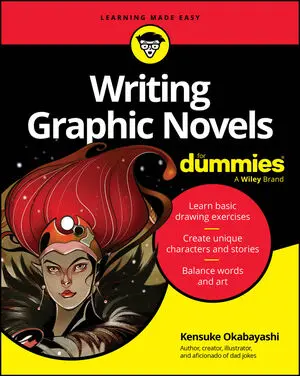The thought of doing your own children's book publicity can be both exciting and overwhelming thanks to the almost unlimited number of potential tools available, such as websites, blogs, videos, radio and television interviews, press releases, podcasts, and social media. Ultimately, though, it’s best to take a two-pronged approach to publicity by embracing both the digital and traditional components of publicity campaigns.
Build an online presence for your book
Nowadays, building an online marketing platform to display, promote, and sell your book is considered an essential element in an effective publicity campaign. Here are the most effective online marketing platforms:
Website: You might feature your book on your own existing website, or create a new website dedicated to your book. You can also try to get other website owners to feature your book and link to your site.
Blog: You can feature your book on an existing blog or create a new blog dedicated to your book. As with websites, you can try to get other bloggers to talk about and link to your book.
Podcasts: If you have retained the audio rights to your book (or for use in promotional purposes), you might be able to create a series of podcasts of you, the author, reading chapters of your book aloud.
YouTube video: You can create a video based on your book and post it to YouTube. Better yet, you can create a series of videos based on your book and then set up a YouTube channel for potential readers to visit.
Book trailer: Used to be only movies got trailers, but now many books do as well. Publishers and authors can go all out with animation or use a simple program such as iMovie to create a catchy trailer to post on YouTube, your website, your friends’ websites — anywhere.
Facebook: You can create a Facebook page just for your book, make your book a part of your existing Facebook page, or even buy an ad.
Twitter: If you have a Twitter account, then you can send out a steady stream of tweets about your book. And if you don’t have a Twitter account? Get one.
A well-designed online marketing platform can be a powerful advertisement for your book and — best of all — it’s available 24 hours a day, seven days a week, and can be viewed by potential book buyers anywhere in the world.
Send out press releases about your children's book
A press release (also known as a media release or news release) is simply a brief, written notice of some newsworthy event — in this case, the publication of your book. Press releases are generally sent out via e-mail or by way of an online press release service.
A press release is most often one — and never more than two — pages in length. Work hard to keep it to only one page. The key parts of a well-written press release are as follows:
Release date: Unless you want the end recipient to hold off on using the information for some reason, the release date for your press release should read FOR IMMEDIATE RELEASE (and yes, use all caps).
Headline: Write a punchy, one-sentence hook that will make your audience want to read more. Be creative and have fun. Capitalize the first letter of all the words in your headline except articles.
City, state, date (when you’re sending out the release): Your reader wants to know where you are and how timely the press release is.
Introductory paragraph: Write a strong introductory paragraph that includes who, what, when, where, why, and how about your book — as concisely as possible.
Body: This is the heart of your press release, and it should be at least two paragraphs long (but remember — keep your press release to no more than a page).
Biography: A brief biography of the book’s author — you.
Detailed contact information: The name, address, phone number, fax number, website URL, and e-mail address of the person to contact for more information about the book.

Who should you target with your press release? Anyone you think may have an interest in reading it, including newspaper reporters, radio and television talk show hosts and producers, children’s book bloggers and website operators, magazine editors, bookstore owners, and librarians.
Whenever possible, address your press release to a specific individual in an organization. A press release addressed to a specific person has a much better chance of getting read, which means you have a much better chance of getting the media attention you seek.






